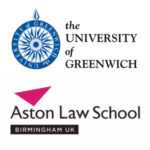Continue reading "Breach of trust: Time for a new law?"
Breach of trust: Time for a new law?

This action related to a transfer in September 2009 of shares in five Saudi Arabian banks, then collectively worth about US$318m, by Mr Maan Al-Sanea (who at that time held those shares) to Samba Financial Group (Samba). The claimants were the liquidators of Saad Investments Company Ltd (SICL). They alleged that Mr Al-Sanea had at the time of the transfer held those shares on trust for SICL. The claimants brought a number of different actions against Samba in respect of the transfer of the shares, formulating the case on various legal bases in the various different actions. The iteration...

Continue reading "Breach of trust: Time for a new law?"
These appeals arose from the a ‘brazen fraud’ by which Allseas Group SA was defrauded of €100 million. After the fraud took place, there was an attempt to launder the proceeds through the client account of a London firm of solicitors, Notable Services LLP, whose partners included Mr Landman. Police intervention secured the return of €88 million – the present proceedings concerned attempts to recover the remainder of this sum from Notable, Mr Landman, Mr Louanjli (a bank employee who provided information to Notable) and LLB Verwaltung, the bank who employed him (”the Bank”).
In add...

Continue reading "Trusts: Test of dishonesty revisited"
The first defendant practised as a solicitor under his own name until 2013. In that year he began to practise through the third defendant company, which was authorised as a ‘licensed body’ for the purposes of the Legal Services Act 2007. The directors of the third defendant were the first and second defendants.
On 8 December 2014 the Solicitors Regulation Authority decided to intervene in the practice of the first and third defendants and sent notices to the defendants advising them of this.
The decision of the adjudication panel recorded that it decide...
The claimant (Mr Gabriel) and the first defendant (Mr Little) were businessmen and erstwhile friends who had previously collaborated in respect to a project known as Southgate street development in Gloucester. The third defendant (High Tech), the entire share capital of which was owned by Mr Little, was the building contractor. The fourth defendant (BPE), a firm of solicitors engaged by Mr Gabriel, drafted a facility letter recording the terms upon which Mr Gabriel was prepared to make a contribution by way of loan to the cost of the development. In the event, Mr Gabriel was unable to ob...

Continue reading "Breach Of Trust: Dishonest or unconscionable?"